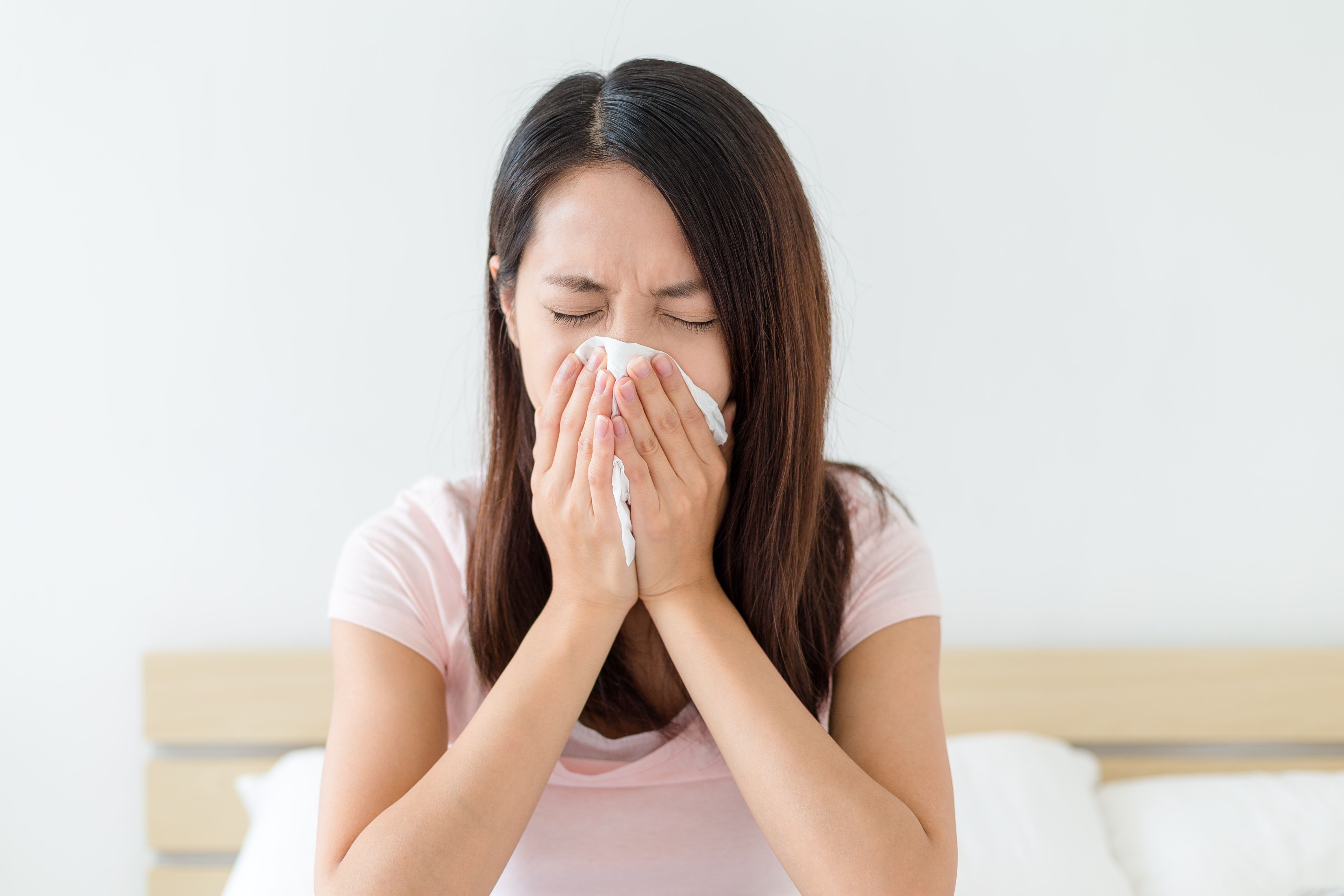Nonallergic rhinitis, also known as vasomotor rhinitis, is a condition with symptoms similar to allergic rhinitis, but this does not involve the immune system. It occurs when the blood vessels in the nose expand and cause congestion.
This is not harmful but the continuous sneezing, and congested, drippy nose can be annoying. The condition is often confirmed only after other conditions such as allergic rhinitis or infection are ruled out. This can affect all ages, but more common after age 20.
Nonallergic rhinitis triggers include:
- Environmental: dust, smog, secondhand smoke, strong odors, chemical fumes
- Weather changes: temperature or humidity changes
- Infections: Viral infection, such as cold or flu
- Foods and beverages: eating hot or spicy foods, and drinking alcoholic beverages
- Certain medications: aspirin, ibuprofen, hypertension medications, sedatives, antidepressants, oral contraceptives
- Hormone changes: pregnancy, menstruation, oral contraceptives use
- Stress
Even though nonallergic rhinitis is not harmful, having it for a long time can lead to complications such as:
- Nasal polyps: Benign growths in the lining of the nose due to inflammation. This will lead to blockage of the
- Chronic sinusitis: Prolonged nasal congestion can lead to inflammation of the nose or sinusitis. Chronic sinusitis lasts for more than 12 weeks and causes pain, tenderness, and swelling around your eyes, cheeks, nose or forehead.
- Middle ear infections
- Interrupted daily activities


